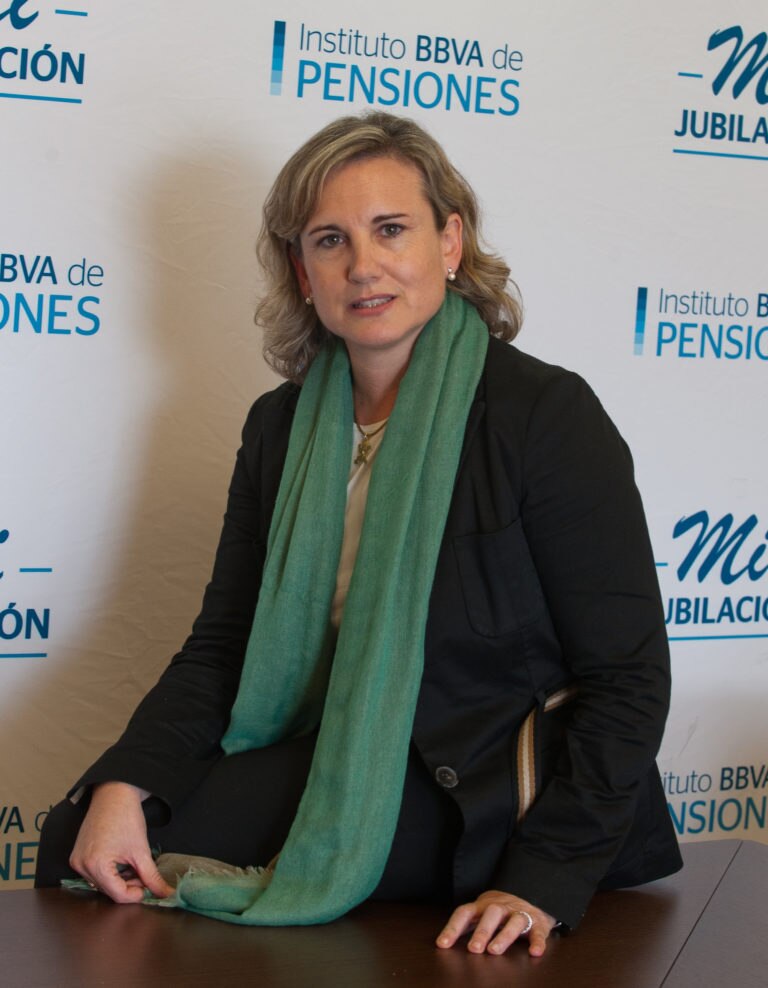Can longevity transform societies as we know them?
Rising life expectancy, longevity, is a relatively recent phenomenon dating from the 19th century. Until then, for nearly 60,000 years, the life expectancy of humanity remained relatively constant. There is some evidence that increased life expectancy is a permanent phenomenon, with the implications that this might have not only for pension systems, but also for the organization of societies themselves.

A study by Mercedes Ayuso and Robert Holzmann, members of the Forum of Experts of the BBVA Pension Institute explains how, ccording to recent archaeological studies, life expectancy has remained constant for some 8,000 generations. Since Paleolithic times, with the first hunters and harvesters, until the early 19th century the average life expectancy has been around 31 years, being effectively between 27 and 35 years.
According to this study, from the 19th century life expectancy at birth has increased, first in a limited number of countries undergoing an industrialization and modernization process, and starting in the 20th century throughout the world. “Population aging is quite likely the most important socio-economic change in recorded history of mankind", says Mr. Holzmann.
Life expectancy at birth has increased, first, due to the reduction in the rate of mortality at earlier ages until five, particularly with the improvement in sanitary conditions on delivery and the immunization advances.
Today, the rate of mortality at early ages has reached very low levels in the more developed economies, which means that the more recent changes in the increase in life expectancy already correspond esentially to the increase in the probability of survival at earlier ages, in this case thanks to medical advances. “In the future, practically all the increase in life expectancy will be due to the improvement in the rate of mortality around the age of retirement and at later ages”, according to the report by the expertos of the BBVA Pension Institute.
“Population aging is quite likely the most important socio-economic change in recorded history of mankind
Spain, one of the highest life expectancies
The case of Spain is paradigmatic: life expectancy at birth is higher than in Europe, and the difference is expected to be maintained over time. On average, life expectancy is 5.3 years higher in Spain than in Europe and the difference is greater for men than for women (5.51 years and 5.26 years, respectively).
The rising life expectancy has a direct impact on pension systems and subsequent implications on the organization of society itself. “When public pension schemes were first put in place in the 19th century, the increase in longevity was due mainly to the higher probability of survival of workers, combined with a high fertility rate, thus increasing even further manpower and, therefore, the participation in the system, thanks to which revenue grew”, according to the report. “
"In this way, the funding of increasingly generous pensions was possible and simple, with a life expectancy at the time of retirement that only increased slightly”. In short, the decline in the rate of mortality at low levels enabled the generation of sufficient manpower to pay generous pensions to retired workers whose life expectancy then was still not too long.
“However, the trend in developed countries over the last decades has been characterized by a slowdown of manpower growth due to declining fertility, while the number of pensioners has increased due to the cohort effect and the rising life expectancy in old age”, it explains.
Rethink the public pension systems?
With increasingly low fertility rates and higher life expectancy, the authors argue for the need to rethink the public pay-as-you go pension schemes, since there are fewer active workers to fund pensions that have to be paid for longer.
“Having an increasingly older effective retirement age with the support of an optimal pension system will require a fundamental transformation of the labor market institutions and, essentially, of all the other social institutions as we know them”, maintains the report, which highlights a number of changes that will need to be addressed:
- the way in which education and skills are acquired at all ages, including the way in which wages are negotiated;
- the way in which labor and professional life is developed to enable an increasingly active life;
- how to face the fact that we will reach our professional zenith long before the age of retirement and how to adapt to lower positions at older ages;
- how to ensure that people remain healthy, skillful and motivated to work at older ages;
- and how to ensure that a much greater proportion of low-skilled old people maintain their abilities and their space in the labor market, and not only the better educated ones who have already accumulated greater wealth.
“All those 'soft' aspects can be more difficult to solve than the technical aspects of an optimal pension system. But if we do not solve the technical aspects of the pension systems, these 'soft' aspects may be unsolvable”, concludes the study.
Two members od the Forum of Experts of the BBVA Pension Institute

Mercedes Ayuso
Professor of Actuarial Statistics from the University of Barcelona, PhD in Economics and Business Administration ( Honours ) and insurance actuary . Full member of the research group Risk Finance and Insurance ( Riskcenter -UB ). Among its research highlights the longevity risk analysis and dependency, on which she has published in national and international scientific journals.
She has directed various public projects of the Ministry of Economy. Member of the Committee of Experts appointed by the Government for the definition of the sustainability factor of the public pension system. She has appeared on several occasions before the Non-Standing Committee for monitoring and evaluation of the Toledo Pact. Coordinator of the Master in Actuarial Science and Finance and Co- director of the Master in Management of Insurance and Finance at the University of Barcelona.
Roberto Holzmann

Robert Holzmann
After an MBA from the University of Graz (Austria ), Robert Holzmann completed a PhD in Economics from the University of Vienna. He was also part of the Executive Development Program at Harvard University in the United States.
He has worked as Senior Economist in the Fiscal Affairs Department of the International Monetary Fund in Washington D.C., Old Age Financial Protection Chair at the University of Malaya in Malaysia, and currently is he Director of the Austrian Academy of Sciences in Vienna.
Robert Holzmann has cooperated closely on several projects of the World Bank in Washington D.C. Among them, was the research director of the Labor Mobility Program and currently works as Senior Consultant to the World Bank.